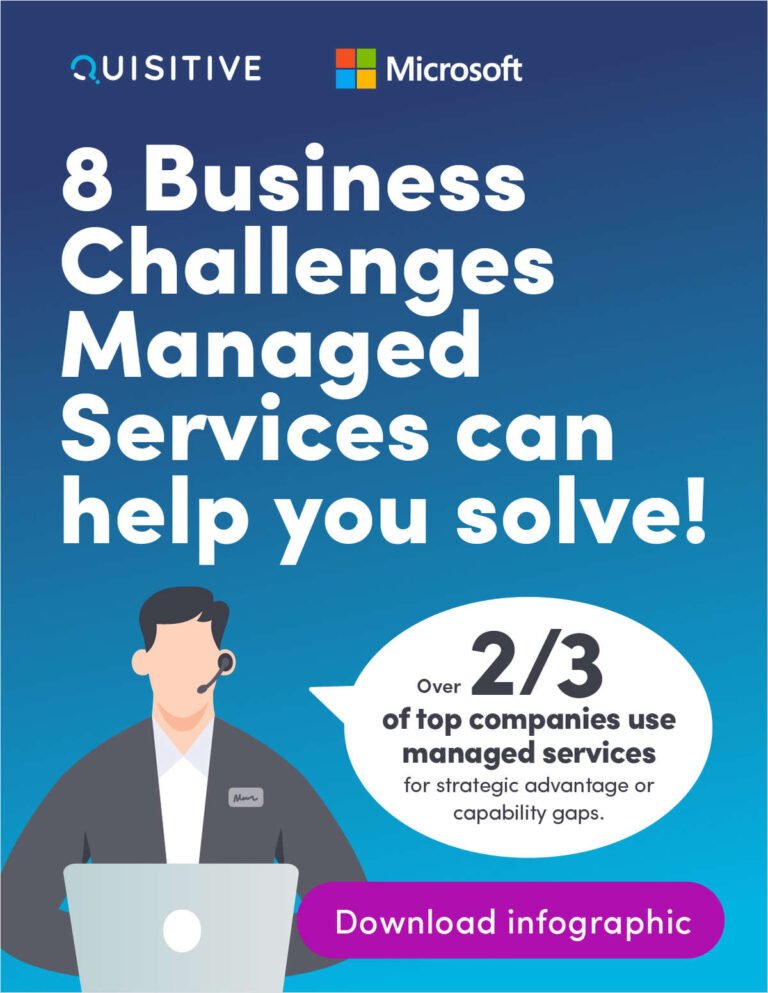“`html
Introduction to AI in B2B Marketing
Artificial intelligence (AI) is rapidly transforming the landscape of B2B marketing, offering unprecedented opportunities for efficiency and personalization. As businesses strive to gain a competitive edge, the adoption of AI technologies is becoming increasingly prevalent. These innovations are not just trends; they are reshaping the very foundations of how B2B companies approach marketing strategies.
The primary driver behind this shift is the need for data-driven decision-making. In an era where businesses are inundated with vast amounts of data, AI provides the tools necessary to analyze and interpret this information swiftly and accurately. This capability allows marketers to make informed decisions, targeting their efforts more precisely and effectively than ever before. AI-powered analytics can uncover patterns and insights that would be nearly impossible to detect through traditional methods.
Another significant factor contributing to the rise of AI in B2B marketing is the demand for personalization. Modern customers expect tailored experiences, and AI enables businesses to meet these expectations by analyzing user behavior and preferences. By leveraging machine learning algorithms, companies can create highly personalized content and recommendations, fostering stronger relationships with their clients.
Efficiency is also a key advantage of AI in B2B marketing. Automated processes, such as lead scoring and segmentation, streamline workflows and free up valuable time for marketers to focus on strategic initiatives. AI-driven tools can manage repetitive tasks with remarkable speed and accuracy, reducing the margin for error and increasing overall productivity.
In summary, the integration of AI into B2B marketing is not merely a technological advancement but a revolution that addresses the core needs of modern businesses. As AI continues to evolve, its applications in B2B marketing are expected to expand, offering even more sophisticated solutions for efficiency, personalization, and data-driven decision-making.
AI-Driven Lead Scoring
In the realm of B2B marketing, lead scoring has traditionally been a labor-intensive process requiring marketers to manually evaluate leads based on a set of predefined criteria. However, with the advent of artificial intelligence (AI), this paradigm is shifting dramatically. AI-driven lead scoring leverages advanced algorithms and machine learning techniques to analyze vast datasets and identify high-potential leads with remarkable precision.
One of the primary advantages of AI-driven lead scoring is its ability to process and analyze large volumes of data in real-time. By evaluating numerous data points, including demographic information, behavioral data, and interaction history, AI systems can score leads more accurately than manual methods. This improved accuracy ensures that sales teams can focus their efforts on leads that are more likely to convert, ultimately enhancing the efficiency of the sales process.
Moreover, AI-driven lead scoring provides enhanced prioritization of sales efforts. Traditional lead scoring models often rely on static rules that may not adapt to changing market conditions or evolving customer behaviors. In contrast, AI algorithms continuously learn and refine their scoring models based on new data, allowing for dynamic and adaptive prioritization. As a result, sales teams can quickly adjust their strategies to target the most promising leads, leading to increased conversion rates and higher revenue.
Several AI tools and technologies are revolutionizing lead scoring in B2B marketing. Platforms like Salesforce Einstein and HubSpot’s Predictive Lead Scoring utilize machine learning to predict lead quality and prioritize follow-ups. Additionally, specialized tools such as Infer and Leadspace integrate seamlessly with existing CRM systems to provide deeper insights and more accurate lead scores. These AI-driven solutions not only automate the lead scoring process but also offer actionable intelligence that empowers sales teams to make data-driven decisions.
In conclusion, AI-driven lead scoring represents a significant advancement in B2B marketing, offering improved accuracy, better prioritization, and increased conversion rates. By harnessing the power of AI, businesses can optimize their lead management processes and gain a competitive edge in the marketplace.
Personalization and Customer Segmentation
Artificial Intelligence (AI) has revolutionized B2B marketing by enabling highly personalized marketing strategies through advanced customer segmentation. By leveraging AI, businesses can segment their customers more effectively based on behavior, preferences, and needs. Machine learning algorithms play a critical role in this process by identifying patterns and predicting customer behavior with remarkable accuracy.
Machine learning algorithms analyze vast amounts of data from various sources, such as transaction histories, website interactions, and social media activities. These algorithms can detect subtle patterns and correlations that may not be immediately apparent to human analysts. By doing so, AI helps marketers create detailed customer profiles and segments, allowing for highly targeted and personalized marketing campaigns.
For example, an AI-driven customer segmentation strategy might involve analyzing purchase histories to identify high-value customers who frequently buy premium products. The AI system can then predict which customers are likely to make similar purchases in the future. Marketers can use this information to tailor their messaging and offers specifically to these high-value segments, increasing the likelihood of conversion and customer loyalty.
Another successful application of AI in B2B marketing personalization is dynamic content customization. AI algorithms can analyze individual customer preferences and deliver personalized content in real-time. For instance, a company might use AI to personalize email marketing campaigns by dynamically adjusting the content based on the recipient’s past interactions and preferences. This level of personalization can significantly enhance engagement rates and drive better business outcomes.
AI-driven personalization and customer segmentation are transforming the B2B marketing landscape. By harnessing the power of machine learning to understand customer behavior and preferences, businesses can deliver more relevant and effective marketing strategies. This not only improves customer satisfaction but also drives higher conversion rates and stronger customer relationships.
Content Creation and Optimization with AI
Artificial intelligence (AI) is revolutionizing content creation in the B2B marketing landscape. By leveraging advanced algorithms and natural language processing (NLP), AI can generate a wide variety of content, from blog posts and social media updates to personalized email campaigns. The integration of AI in content creation not only saves time but also enhances the quality and relevance of the content, leading to increased engagement and a higher return on investment (ROI).
One of the key advantages of AI in content creation is its ability to produce content at scale. For instance, AI-powered tools like GPT-3 can generate blog posts on various topics, maintaining a consistent tone and style that resonates with the target audience. This capability allows marketers to keep up with the demand for fresh content, ensuring that their brand remains visible and relevant in a crowded digital landscape.
In addition to generating content, AI can optimize it for better engagement. AI-driven content optimization tools analyze existing content and provide actionable insights on how to improve it. These tools assess various factors such as keyword usage, readability, and SEO performance, enabling marketers to fine-tune their content to meet the preferences of both search engines and human readers. For example, tools like Clearscope and MarketMuse use AI to recommend keywords and phrases that can help boost a piece’s search engine ranking, ultimately driving more organic traffic to the website.
AI also plays a crucial role in personalizing content, which is essential for effective B2B marketing. By analyzing data from various sources, AI can create tailored email campaigns that address the specific needs and interests of individual recipients. This level of personalization increases the likelihood of engagement and conversion, as recipients are more likely to respond to content that feels directly relevant to them.
Examples of successful AI-generated content abound. Companies like HubSpot and Drift have used AI to create personalized chatbots that engage website visitors and guide them through the sales funnel. These AI-driven interactions not only enhance user experience but also provide valuable data that can be used to further refine marketing strategies.
In conclusion, AI is transforming content creation and optimization in B2B marketing. By harnessing the power of NLP and AI-powered tools, marketers can produce high-quality, engaging content that drives better results and maximizes ROI.
AI in Marketing Automation
Artificial Intelligence (AI) is revolutionizing the landscape of marketing automation by streamlining and optimizing a myriad of repetitive tasks. One of the prominent areas where AI has made a substantial impact is email marketing. Through AI-driven tools, businesses can now automate email campaigns with greater precision. These tools can analyze user behavior, segment audiences, and personalize email content, thereby enhancing engagement rates and driving conversions. AI algorithms can predict the optimal times to send emails, ensuring higher open rates and improved customer interaction.
Another significant application of AI in marketing automation is social media scheduling. Managing multiple social media accounts and consistently posting engaging content can be a daunting task. AI-powered platforms can automate social media posting schedules, curate content, and even generate posts that resonate with the target audience. This automation not only saves time but also ensures a consistent online presence, which is crucial for brand recognition and customer loyalty.
Campaign management is another domain where AI’s capabilities shine. With AI, marketers can automate the entire campaign process from inception to execution and analysis. AI tools can identify target demographics, optimize ad placements, and adjust budgets in real-time based on performance metrics. This level of automation allows marketers to run efficient campaigns at scale, ultimately leading to better ROI and resource allocation.
The benefits of AI-driven marketing automation are manifold. It significantly reduces the time spent on mundane tasks, allowing marketers to focus on strategy and creative aspects. Increased efficiency is another notable advantage, as AI can process and analyze vast amounts of data faster and more accurately than humans. Additionally, AI-driven automation facilitates scalability, enabling businesses to expand their marketing efforts without a proportional increase in resources.
Several AI marketing automation platforms have gained popularity due to their robust features and user-friendly interfaces. Tools like HubSpot, Marketo, and Salesforce’s Einstein are leading the way in providing comprehensive AI solutions for marketing automation. These platforms offer a wide range of functionalities, from automated email workflows to advanced analytics, making them indispensable assets for modern marketers.
Predictive Analytics for Strategic Decision-Making
In the rapidly evolving landscape of B2B marketing, predictive analytics powered by artificial intelligence (AI) is emerging as a game-changer. By leveraging AI, businesses can analyze vast amounts of data to make more informed, data-driven decisions. Predictive analytics utilizes algorithms and statistical models to forecast future outcomes based on historical data, providing marketers with valuable insights into market trends, customer behavior, and campaign performance.
One of the primary advantages of AI-powered predictive analytics is its ability to forecast market trends with a high degree of accuracy. By analyzing patterns in data, such as sales figures, industry reports, and social media activity, AI can identify emerging trends and shifts in the market. This foresight allows B2B marketers to stay ahead of the competition, adapting their strategies proactively rather than reactively. For instance, if predictive analytics indicates a rising demand for a particular product or service, companies can allocate resources accordingly, ensuring they meet customer needs promptly.
Understanding customer behavior is another critical area where predictive analytics offers immense value. By examining past interactions, purchase history, and demographic information, AI can predict future actions and preferences of customers. This enables marketers to tailor their campaigns more effectively, delivering personalized content and offers that resonate with their target audience. Consequently, businesses can enhance customer satisfaction and loyalty, driving higher conversion rates and repeat business.
Predictive analytics also plays a pivotal role in optimizing campaign performance. By predicting which marketing strategies are likely to yield the best results, AI helps marketers allocate their budgets more efficiently. This involves identifying the most effective channels, messaging, and timing for campaigns. As a result, businesses can maximize their return on investment (ROI) while minimizing wasteful expenditure on less effective tactics.
Overall, the integration of AI-powered predictive analytics into B2B marketing strategies offers numerous advantages. From anticipating market trends to understanding customer behavior and fine-tuning campaign performance, predictive analytics equips marketers with the tools needed to develop more effective strategies and achieve superior results. As the future of B2B marketing continues to be shaped by AI, those who harness the power of predictive analytics will be well-positioned to thrive in this dynamic environment.
AI-Powered Customer Support and Chatbots
Artificial intelligence (AI) is revolutionizing customer support in B2B marketing through the deployment of chatbots and virtual assistants. These AI-driven tools are increasingly becoming essential for businesses aiming to provide superior customer support. One of the most significant benefits of AI-powered customer support is its 24/7 availability. Unlike human agents, chatbots can operate round the clock, addressing customer inquiries at any time of the day, which is particularly valuable for global businesses that serve clients across different time zones.
Another notable advantage is the faster response times facilitated by AI. Traditional customer support models often suffer from long wait times, leading to customer frustration. AI chatbots, however, can handle multiple queries simultaneously, providing instant responses to common questions and freeing up human agents to tackle more complex issues. This efficiency not only reduces the workload of customer support teams but also enhances customer satisfaction by resolving issues promptly.
AI-driven customer support also enables businesses to deliver personalized experiences. By leveraging machine learning algorithms, chatbots can analyze past interactions and customer data to offer tailored responses and product recommendations. This level of personalization helps in building stronger relationships with clients and contributes to higher customer retention rates.
Several companies have successfully implemented AI-powered customer support solutions. For instance, IBM’s Watson Assistant has been deployed by numerous organizations to streamline their customer service operations. Similarly, Drift, a conversational marketing platform, uses AI to engage website visitors in real-time, qualifying leads and answering queries instantly. These implementations highlight how AI can enhance the efficiency and effectiveness of customer support in B2B marketing.
Overall, AI-powered customer support and chatbots are transforming the landscape of B2B marketing. The benefits of 24/7 availability, faster response times, and improved customer satisfaction underscore the importance of integrating AI into customer support strategies. As AI technology continues to evolve, its role in reshaping customer support will only become more pronounced, driving businesses toward more efficient and effective service models.
Future Trends and Challenges in AI-Driven B2B Marketing
The landscape of B2B marketing is on the cusp of transformation, driven by the continuous evolution of AI technology. As AI becomes more sophisticated, we can anticipate a significant increase in its adoption across various industries. This will facilitate more precise lead scoring, personalized content creation, and enhanced customer engagement, fundamentally altering traditional marketing paradigms. One of the most promising advancements is the integration of machine learning algorithms that can predict market trends, enabling companies to stay ahead of the competition.
Emerging use cases in AI-driven B2B marketing are manifold. For instance, natural language processing (NLP) can analyze customer interactions to deliver tailor-made solutions, while predictive analytics can optimize sales strategies by identifying high-value prospects. Furthermore, AI-powered chatbots are enhancing customer support by providing real-time assistance and gathering valuable data that can be used to refine marketing efforts. These technologies not only streamline operations but also offer a competitive edge by delivering superior customer experiences.
However, the adoption of AI in B2B marketing is not without its challenges. Data privacy remains a paramount concern, as businesses must navigate complex regulations to ensure the ethical use of customer information. Algorithmic bias is another critical issue; if not addressed, it can lead to unfair practices and skewed results. Transparency in AI operations is essential to build trust among stakeholders, necessitating clear communication about how AI tools are utilized and the data they process.
B2B marketers must be proactive in preparing for these challenges. Implementing robust data governance frameworks and ensuring compliance with data protection laws will be crucial. Additionally, investing in bias detection and mitigation tools can help create fair and accurate AI models. Transparency can be achieved by adopting explainable AI methods, which allow marketers to understand and convey how decisions are made. By staying informed and adaptive, B2B marketers can harness the full potential of AI while navigating its complexities effectively.








